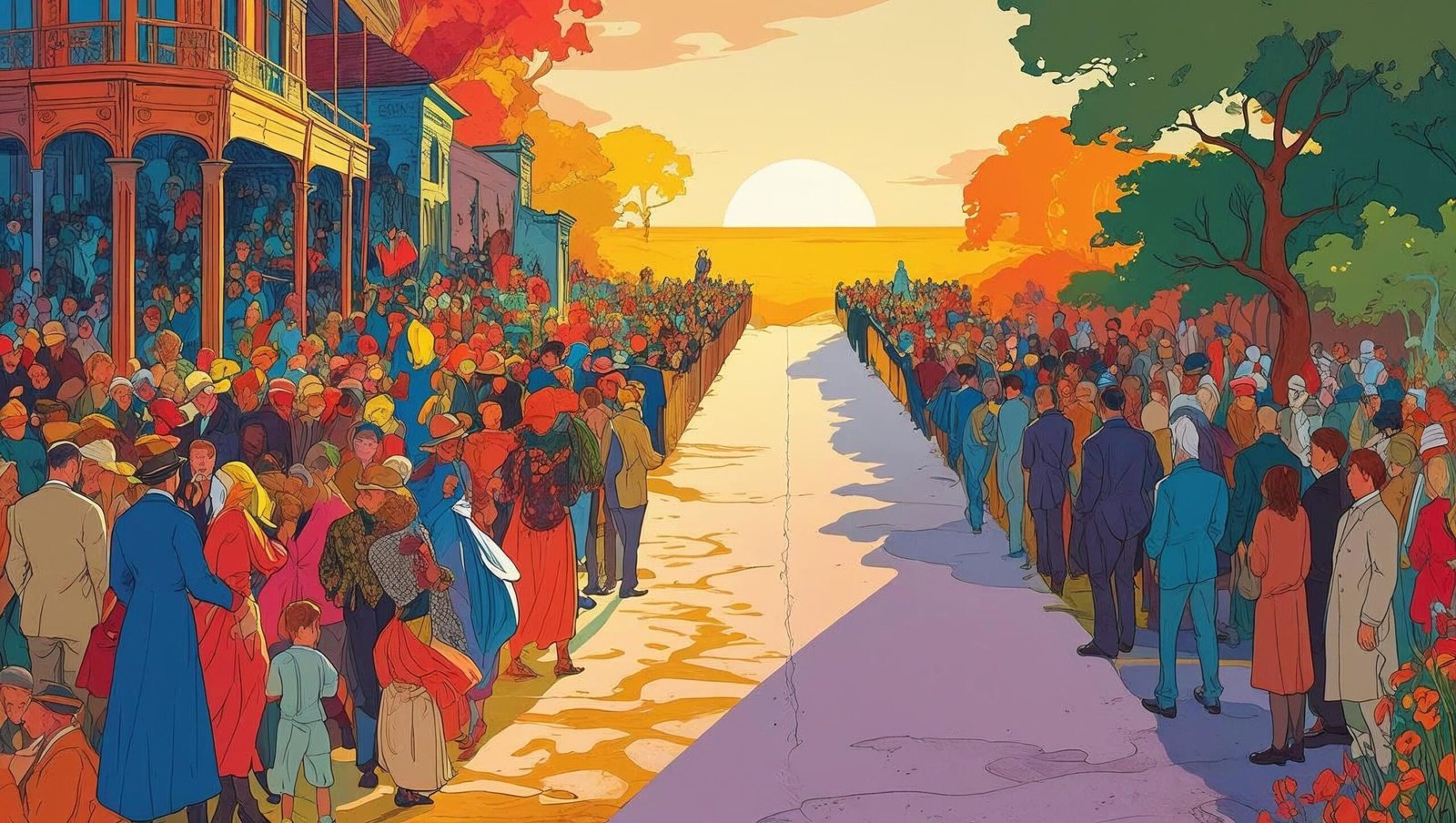Introduction: The Cost of Doing It All
In today’s hyperconnected world, the pursuit of more—more tasks, more commitments, more achievements—has become a silent epidemic. We are busier than ever, yet feel increasingly unfulfilled. Essentialism by Greg McKeown presents a radical yet liberating alternative: less, but better. This blog post dives deep into the most transformative insights from the book and explains how its philosophy can revolutionize your personal and professional life.

What Is Essentialism?
Essentialism by Greg McKeown is not just a productivity guide; it’s a manifesto against mediocrity and noise. The core idea is simple but profound: prioritize only what truly matters and eliminate everything else. The book dismantles the illusion that we can have it all and shows how the disciplined pursuit of less can lead to a life of clarity, control, and meaning.
The author frames essentialism as a systematic discipline for discerning what is absolutely essential, then eliminating everything that is not. This approach empowers individuals to regain control of their time, energy, and purpose.
The Philosophy Behind Essentialism
At the heart of Essentialism by Greg McKeown lies a powerful question: “What is the most important thing I should be doing right now?” This principle invites us to challenge default thinking and intentionally design a life of purpose.
Rather than reacting to the demands of others, essentialism demands we take control of our own choices. As McKeown notes, “If you don’t prioritize your life, someone else will.”
1. The Essentialist Mindset: Choose Wisely
The first step, according to Essentialism by Greg McKeown, is to adopt the essentialist mindset. This means understanding that we always have a choice, even when it doesn’t feel like it. By shifting from the false notion of “I have to” to “I choose to,” we reclaim agency over our time and decisions.
2. The Power of Saying No
One of the most empowering lessons in Essentialism by Greg McKeown is the art of saying no. Saying yes to everything means saying no to what truly matters. McKeown teaches that a graceful no is better than a resentful yes. Refusing nonessential commitments preserves your energy for higher priorities.
3. Trade-Offs Are Not the Enemy
Contrary to popular belief, Essentialism by Greg McKeown emphasizes that trade-offs are inevitable, not evil. Instead of trying to do it all, essentialists accept that choosing one thing means not choosing another—and that’s okay. This acceptance brings peace and clarity.
4. The Disciplined Pursuit of Less
In Essentialism by Greg McKeown, the author stresses that being selective is a practice. Essentialism is not about doing less for the sake of laziness but about doing less but better. Discipline is required to continuously evaluate what deserves your attention and effort.

5. Escape the Productivity Trap
More hours, more checklists, more meetings—these often create an illusion of productivity. Essentialism by Greg McKeown debunks this myth, urging readers to focus on results rather than activities. It’s not about how much you do, but how well you do what truly counts.
6. Design Your Life Deliberately
One of the most empowering messages of Essentialism by Greg McKeown is that you can design your own life. Instead of reacting to events or conforming to expectations, essentialists strategically choose what to focus on. This design-thinking approach fosters creativity and fulfillment.
7. Sleep: A Non-Negotiable Essential
Unlike most productivity books, Essentialism by Greg McKeown champions rest and renewal. He asserts that sleep is an essential priority, not a luxury. A well-rested mind makes better decisions, and essentialism is all about making better decisions consistently.
8. Play and Explore: Fuel for Innovation
McKeown also champions the importance of play and exploration. Essentialism by Greg McKeown states that allowing ourselves time to tinker, imagine, and be curious fuels innovation and leads to unexpected breakthroughs.
9. Protect the Asset—You
Perhaps the most personal lesson in Essentialism by Greg McKeown is the idea of self-care as a strategic imperative. You are your most valuable asset. Failing to protect your health, energy, and focus will eventually make you ineffective in everything else.
10. Establish Boundaries That Matter
Boundaries are not walls; they are filters for essential living. Essentialism by Greg McKeown encourages readers to set clear limits to prevent the invasion of nonessential demands. Boundaries are an act of respect for yourself and your priorities.

11. Focus Is Your Superpower
In a world driven by distraction, the ability to focus deeply on one important task is a superpower. Essentialism by Greg McKeown insists that multi-tasking is a myth and that true productivity lies in single-minded concentration.
The Myth of Multitasking and the Modern Attention Crisis
The illusion of multitasking has long been celebrated in contemporary culture. People wear busyness like a badge of honor, assuming that juggling multiple responsibilities simultaneously is a sign of efficiency. However, scientific studies tell a different story. Human brains are not wired to perform more than one cognitively demanding task at a time. What we perceive as multitasking is actually rapid task-switching, which severely compromises the quality of attention and retention.
This modern crisis of fractured attention leads to reduced productivity, more mistakes, and a shallow sense of accomplishment. The brain’s cognitive bandwidth is limited, and every distraction—be it an email ping or social media notification—further depletes it. In contrast, those who embrace monotasking not only perform better but also report higher satisfaction in their work.
Practicing presence in daily life is one antidote to this crisis. Whether it’s focusing solely on a conversation without glancing at a smartphone or engaging in deep work for extended periods, attention is a superpower when exercised deliberately.
The Noise-to-Signal Ratio in Decision-Making
Another powerful idea that supports streamlined living is the concept of the noise-to-signal ratio. In a world inundated with data, headlines, opinions, and metrics, separating useful signals from background noise has become a crucial life skill. The ability to discern what truly matters in any given situation—whether it’s choosing between two job offers or deciding how to spend a weekend—requires mental clarity and courage.
People often confuse urgency with importance, reacting to the loudest voice or the most recent message instead of taking a strategic pause. Emotional reactivity, fear of missing out, and the compulsion to prove one’s worth only muddy the waters further.
To develop discernment, it helps to build decision-making rituals. For example, blocking time weekly for life audits, journaling, or solitude can help sift through complexity and locate what genuinely aligns with one’s values. Over time, this cultivates inner alignment and quiet confidence.
Wisdom from Parallel Disciplines
The core philosophy explored in this blog post finds echoes in several ancient and modern wisdom traditions. Stoicism, for instance, advocates a life guided by virtue and logic rather than impulse and distraction. The Stoic practice of negative visualization—imagining the loss of something we take for granted—naturally guides us toward a simpler, more grateful way of living.
Buddhism, too, emphasizes mindfulness, detachment from craving, and deep attention to the present moment. Its concept of “right effort” resonates deeply with the practice of doing only what is necessary and worthwhile, instead of striving endlessly in all directions.
Modern thinkers such as Cal Newport, author of Deep Work, and James Clear, author of Atomic Habits, also argue for reducing noise and deepening focus. They suggest systems and routines that prioritize high-impact tasks and eliminate distractions.
The common thread among all these schools of thought is a respect for the finite nature of time, attention, and energy. Rather than spreading oneself thin, they promote intentionality, clarity, and presence.
Stories from Real Life
Consider the story of a Silicon Valley executive who decided to walk away from several lucrative projects to focus on building a meaningful product for a specific niche. Although the decision was initially perceived as reckless, the clarity and passion with which she approached her new goal ultimately led to one of the most respected startups in her industry.
Or take the case of a school principal in rural India who transformed the education system in his village. Instead of pursuing large-scale interventions, he focused on one measurable goal: improving reading comprehension in students under age ten. This clarity allowed him to channel resources effectively, train teachers more specifically, and monitor progress with ease. The results outperformed even urban schools with more funding.
These stories highlight that focus is not just a personal strategy but a lever for large-scale impact. Individuals, teams, and entire communities can benefit from it when applied consistently.
The Cultural Trap of “More”
Western and increasingly global cultures are shaped by consumerism, competition, and comparison. Success is often defined in terms of accumulation: more money, more recognition, more followers, more experiences. The self-worth of individuals becomes inextricably tied to their external achievements and possessions.
This cultural framework fuels anxiety, burnout, and a deep-seated sense of inadequacy. It conditions people to fear stillness and silence, pushing them toward constant stimulation. In contrast, simplifying one’s life often leads to deeper connections, better health, and a profound sense of peace.
One powerful way to challenge this narrative is through what minimalists call the “subtraction mindset.” This mindset focuses not on what can be added to one’s life to make it better, but what can be removed to make it lighter. It can apply to clutter in one’s home, unnecessary meetings at work, or even emotional baggage that no longer serves a purpose.

Time as the Ultimate Currency
Time is the most precious non-renewable resource. While money lost can be earned again, time wasted is gone forever. This reality underscores the need for ruthless clarity in how hours and minutes are spent each day.
Blocking time intentionally, also known as timeboxing, can be a helpful practice. It involves assigning specific periods to high-value activities while also reserving time for recovery, relationships, and reflection. Timeboxing not only improves productivity but also brings structure to an otherwise chaotic day.
People who manage their time well often describe a sense of ownership over their lives. This feeling is both liberating and empowering, a far cry from the helplessness experienced by those who feel their days are dictated by others.
Decision Fatigue and the Importance of Routines
Each day, the average person makes thousands of micro-decisions—from what to eat and wear to how to respond to a colleague’s email. This constant stream of choices, though seemingly harmless, gradually depletes mental energy and leads to what psychologists call decision fatigue.
To counter this, high performers often rely on rituals and routines that automate low-value decisions. Steve Jobs famously wore the same outfit every day to reduce trivial choices. Similarly, many authors, athletes, and CEOs follow morning routines that help them enter a state of flow without wasting energy on minor decisions.
By creating routines for repetitive tasks, mental bandwidth is freed up for creative, strategic, and emotionally rich pursuits. This leads to better choices, less stress, and more consistent outcomes.
The Power of Digital Decluttering
Digital noise is one of the most pervasive and invisible forms of clutter today. With dozens of apps, constant notifications, and algorithm-driven feeds, our attention is hijacked almost every waking hour.
A growing movement now advocates for digital decluttering. This involves auditing one’s devices, deleting unnecessary apps, turning off notifications, unsubscribing from promotional emails, and even taking regular breaks from social media.
Beyond technology, the concept of “white space” is essential. White space refers to unscheduled time—time with no purpose other than to breathe, observe, and be. This mental space is where creativity often blooms and where insights are born.
Relationships That Nourish
Just as there are essential tasks, there are essential people. It’s crucial to distinguish between connections that drain energy and those that replenish it. Investing in fewer, deeper relationships yields more emotional richness than spreading oneself thin across countless acquaintances.
Intentionality in relationships also means being fully present. Whether it’s having a phone-free dinner with family or giving undivided attention to a colleague during a one-on-one meeting, quality always trumps quantity.
Curating one’s social circle is not an act of arrogance but of self-respect. It allows emotional energy to be preserved and redirected toward people and causes that matter most.
Closing Thoughts Before the Conclusion
In an age obsessed with more—more speed, more options, more exposure—the act of simplifying becomes revolutionary. Living with purpose, clarity, and calm is not only possible but also urgently necessary. The goal is not perfection, but alignment: a life where actions reflect values and time is treated with reverence.
This way of living doesn’t require monumental changes overnight. Small decisions made with intention—choosing silence over noise, depth over breadth, and meaning over motion—can reshape one’s life trajectory.
Essentialism at Work
Applying Essentialism by Greg McKeown in the workplace leads to smarter meetings, clearer roles, and more meaningful impact. Instead of filling calendars with endless tasks, essentialist teams prioritize outcomes. The result? Less burnout and more innovation.

Essentialism in Relationships
This book’s teachings also extend to relationships. Essentialism by Greg McKeown encourages us to invest in fewer, more meaningful connections. Being present, listening fully, and nurturing core relationships bring long-term fulfillment.
Key Quotes from Essentialism by Greg McKeown
-
“If you don’t prioritize your life, someone else will.”
-
“Remember that a clear ‘no’ can be more graceful than a vague or noncommittal ‘yes.’”
-
“Essentialism is not about how to get more things done; it’s about how to get the right things done.”
Who Should Read This Book?
Anyone who feels overwhelmed by busyness, distracted by chaos, or trapped in a cycle of mindless productivity will benefit from Essentialism by Greg McKeown. It is particularly valuable for entrepreneurs, professionals, parents, and students seeking clarity and purpose.
FAQs on Essentialism by Greg McKeown
Q1. Is Essentialism by Greg McKeown a productivity book?
Yes and no. While it helps improve productivity, Essentialism by Greg McKeown is more about life design and value-driven decision-making.
Q2. Can essentialism be practiced in a fast-paced corporate job?
Absolutely. Essentialism by Greg McKeown provides practical tools for setting boundaries, prioritizing tasks, and communicating effectively in high-demand environments.
Q3. Does the book suggest minimalism?
Not exactly. Essentialism by Greg McKeown is not about owning fewer things—it’s about focusing on fewer but more meaningful activities.
Q4. Is it suitable for students?
Definitely. Students can use the principles from Essentialism by Greg McKeown to avoid burnout, manage time effectively, and concentrate on long-term academic and personal goals.
Q5. How is this book different from other self-help books?
Essentialism by Greg McKeown stands out for its clarity, practicality, and deep philosophical grounding. It does not offer gimmicks but promotes sustainable, life-long changes in how we make decisions.
Conclusion: Less but Exponentially Better
The wisdom of Essentialism by Greg McKeown is both timeless and timely. In a culture that glorifies hustle and overload, this book offers a compelling case for intentional living. Essentialism isn’t about doing less for its own sake—it’s about making space for what truly matters.
If you’re exhausted by constant busyness, craving clarity, or just seeking a more meaningful existence, Essentialism by Greg McKeown might just be the wake-up call you need. Choose wisely, act deliberately, and reclaim your life from the trivial many in favor of the vital few.
For more transformative book reviews and life design content, visit
👉 shubhanshuinsights.com